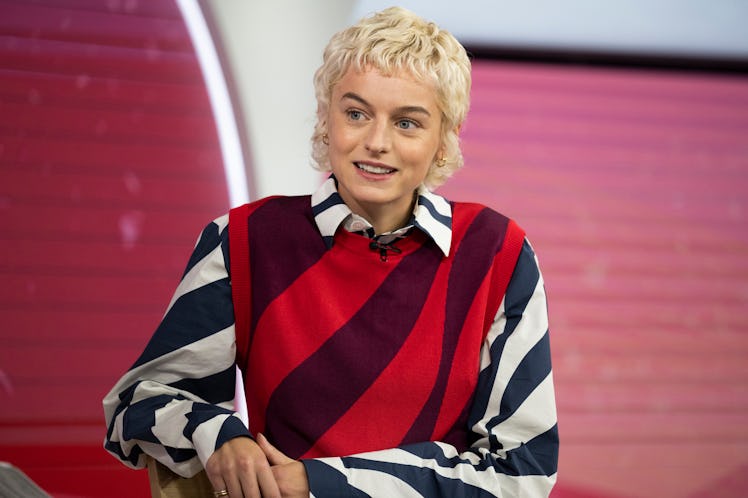mma Corrin is reflecting on the hate they received about their identity. In April 2021, The Crown actor came out as queer and nonbinary. Shortly afterwards, Corrin began discussing their journey in understanding and openly embracing their gender fluidity on social media. With that candor came a heap of backlash, and recently, the actor shared their thoughts about those negative comments to Harper’s Bazaar.
“The vitriol is worse than I anticipated,” Corrin told the outlet on May 22. “Even though we like to think we’re in a progressive society, a lot of what we’re seeing is increasingly a step back.”
They continued, stating the pushback mostly came from people who perceived them as the characters they’ve played — not as a real human being. “People follow me because they’ve watched something I’m in. They think I’m one kind of person, and then they’ll see who I actually am and how I present and—I will never understand why. Who are you hurting by being yourself? Why am I controversial? I think it’s fear. Absolute fear,” Corrin said.
As mentioned, Corrin has been very open about their identity on Instagram: They’ve updated their pronouns on there, talked about their first experience wearing a chest binder, and asked the media to handle conversations about their gender with more care. These intimate posts were met with lots of positive responses, but also a fair share of homophobic hate. Ultimately, those mixture of replies influenced them to stop reading comments for good.
Despite that stance, Corrin told Harper’s Bazaar they occasionally slip up and read reviews about their roles. “I’m getting really good at not doing it. I’d be lying if I said I never read anything,” the My Policeman star said. “Sometimes you read one and think, ‘I’m never going to act again. I can’t do anything.’ You learn your lesson.”
Luckily, the wave of support they’ve received has carried over in real life. In the interview, they recalled a sweet interaction with a fan after their 2022 performance in Orlando — a London theater show adapted from Virginia Woolf’s 1928 gender-bending novel of the same name.
“I remember this older man was waiting for me. His grandchild had come out as trans, and he was trying to understand it. Seeing Orlando shifted his whole perspective; he couldn’t thank me enough. It was wild. It was beautiful,” Corrin said, adding experiences such as these reminds them of how important it is to “take up space” and “be visible.”
